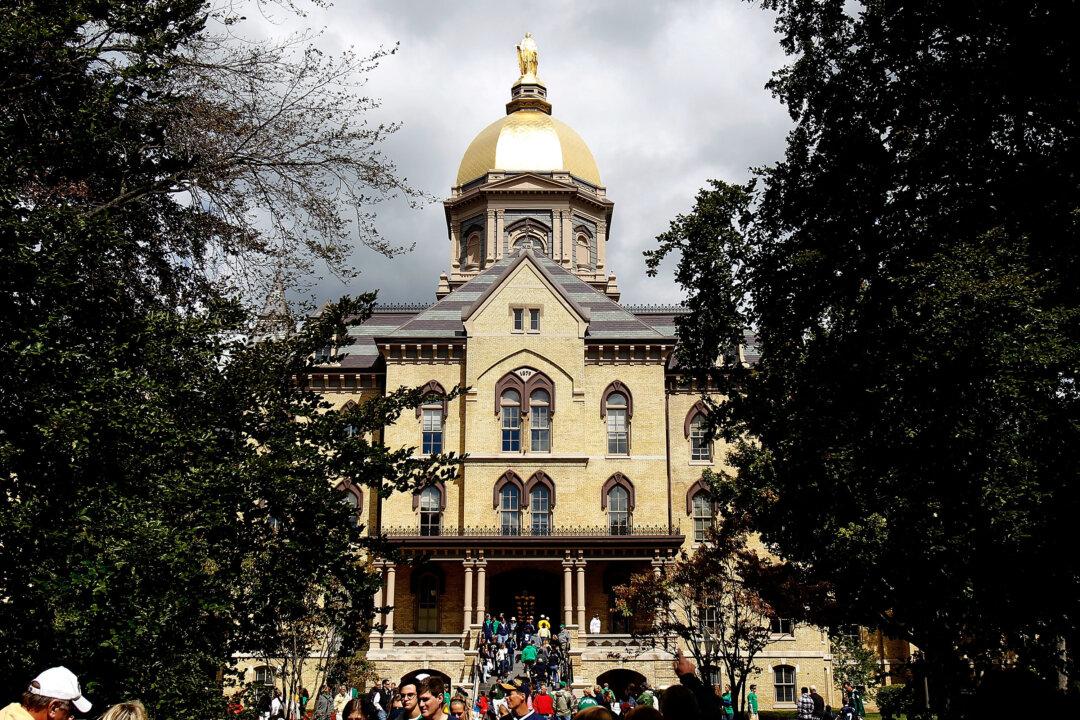Notre Dame has suspended its men’s swimming program for at least one academic year after an external review found some of its members violated National Collegiate Athletic Association (NCAA) rules prohibiting gambling.
University of Notre Dame vice president and James E. Rohr Director of Athletics Pete Bevacqua announced the suspension in an Aug. 15 statement.




